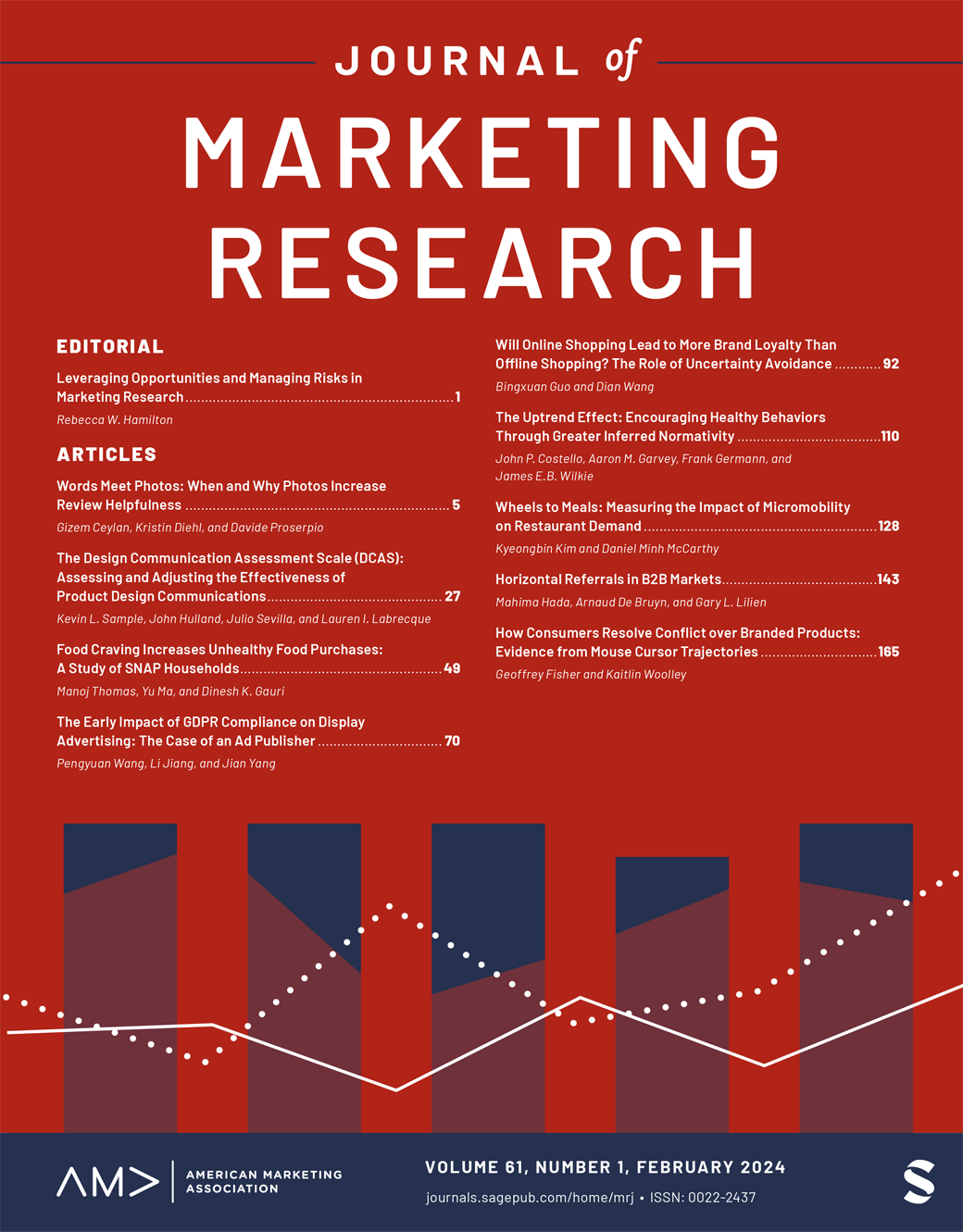感觉良好或感觉正确:暴露于人类痛苦后维持负面情绪
IF 5.1
1区 管理学
Q1 BUSINESS
引用次数: 1
摘要
尽管情绪调节的享乐原则表明,人们希望感觉良好,但目前的研究表明,有时感觉良好似乎是错误的。具体来说,作者认为,在观看了人类痛苦等道德化内容后,消费者立即认为维持负面情绪在道德上是合适的(研究1)。因此,在接触了与人类痛苦相关的内容(与其他负面内容相比)后,消费者认为随后的情绪维持消费在道德上是合适的,而享乐消费在道德上是不合适的(研究2)。他们避免通过享乐消费来修复自己的情绪,因为他们倾向于从事道德上适当的行为(研究3至4b);对于那些认为自己更有道德的人来说尤其如此(研究4b)。当享乐消费与道德相关(研究4a),而不是典型的无聊消费时,这些影响就会减轻。这项研究为营销人员提供了明确的处方,告诉他们什么时候应该提供享乐消费来修复情绪。通过允许人们向遭受苦难的受害者表示敬意,营销人员可以给消费者提供必要的空间来感受他们的同情情绪。本文章由计算机程序翻译,如有差异,请以英文原文为准。
Feeling Good or Feeling Right: Sustaining Negative Emotion After Exposure to Human Suffering
Although hedonic principles of emotion regulation suggest that people wish to feel good, the current research demonstrates that sometimes feeling good just seems wrong. Specifically, the authors argue that, immediately after viewing moralized content such as human suffering, consumers believe that it is morally appropriate to sustain negative emotions (Study 1). Thus, after exposure to content related to human suffering (vs. other negative content), consumers view subsequent mood-sustaining consumption as morally appropriate and hedonic consumption as morally inappropriate (Study 2). Consequently, they avoid repairing their emotions through hedonic consumption because of their preference to engage in morally appropriate behavior (Studies 3 through 4b); this is particularly true for individuals who view themselves as more moral (Study 4b). These effects are mitigated when the hedonic consumption is morally relevant (Study 4a), rather than prototypically frivolous. This research offers clear prescriptions to marketers about when and when not to offer hedonic consumption as mood repair. By allowing people to pay respect to suffering victims, marketers can give consumers needed space to feel their compassionate emotions.
求助全文
通过发布文献求助,成功后即可免费获取论文全文。
去求助
来源期刊

Journal of Marketing Research
BUSINESS-
CiteScore
10.30
自引率
6.60%
发文量
79
期刊介绍:
JMR is written for those academics and practitioners of marketing research who need to be in the forefront of the profession and in possession of the industry"s cutting-edge information. JMR publishes articles representing the entire spectrum of research in marketing. The editorial content is peer-reviewed by an expert panel of leading academics. Articles address the concepts, methods, and applications of marketing research that present new techniques for solving marketing problems; contribute to marketing knowledge based on the use of experimental, descriptive, or analytical techniques; and review and comment on the developments and concepts in related fields that have a bearing on the research industry and its practices.
 求助内容:
求助内容: 应助结果提醒方式:
应助结果提醒方式:


